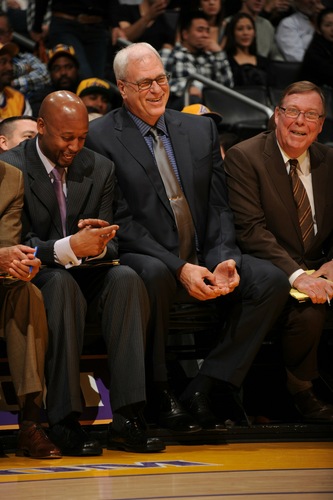Coaching or Not Coaching
In an interview with Jeff Van Gundy (former NBA coach and current TV analyst), he says that the difference between the top 10 coaches is small, but the difference between the top 10 players is huge, which is an interesting observation from a well respected former coach. The thing is, the difference between winning and losing is small too.
Chris Scott, coach of Geelong, said that in a really tight situation at the end of the game he sent a message to one of his key players: "We need you to sum up the situation and do what you think is best." The players summed up the situation and the team won the game.
Rick Reilly writes an article about a coach who tells his team that they need "a certain mindset, an aggressive or killer instinct if you will …".
It makes me think about, what is coaching and what is not coaching.
Coaching is teaching athletes what they need to know/do in order to be successful both at their level and at a higher level. From this perspective Reilly's coach is right on the money.
Coaching is teaching athletes how to understand the situation and solve problems themselves, which seems to be Chris Scott's philosophy.
Coaching can definitely make a difference, but maybe not a huge difference, as Jeff Van Gundy suggests. But if sports can spend millions of dollars on research and technology because the difference between winning and losing can be as little as 1/100th of a second, then some sort of investment in coaching seems appropriate.
Coaching can be a lot of things. But quite often, coaching is working out what NOT to do as well as doing something. Quite often it is about working out what NOT to say, as well as what to say. For example, when coaching 8 year olds, it is clear that you should not be talking about 'killer instinct' but rather talking about and teaching a lifelong enjoyment of the sport.
I always find it interesting that the two most successful basketball coaches of all time - John Wooden and Phil Jackson - had philosophies that you work very very hard on fundamentals, you create a very strong team identity, then let the players loose on the court.
Despite the success of Jackson and Wooden, very few coaches adopt this philosophy. Why? Because it is very very very hard to coach like this. It takes a certain type of person.
Its much easier to try to teach whoever you are coaching everything that you know, and, when they don't do the perfect thing on court, to tell them exactly what they should do.
(Photo Credit)
It makes me think about, what is coaching and what is not coaching.
Coaching is teaching athletes what they need to know/do in order to be successful both at their level and at a higher level. From this perspective Reilly's coach is right on the money.
Coaching is teaching athletes how to understand the situation and solve problems themselves, which seems to be Chris Scott's philosophy.
Coaching can definitely make a difference, but maybe not a huge difference, as Jeff Van Gundy suggests. But if sports can spend millions of dollars on research and technology because the difference between winning and losing can be as little as 1/100th of a second, then some sort of investment in coaching seems appropriate.
Coaching can be a lot of things. But quite often, coaching is working out what NOT to do as well as doing something. Quite often it is about working out what NOT to say, as well as what to say. For example, when coaching 8 year olds, it is clear that you should not be talking about 'killer instinct' but rather talking about and teaching a lifelong enjoyment of the sport.
I always find it interesting that the two most successful basketball coaches of all time - John Wooden and Phil Jackson - had philosophies that you work very very hard on fundamentals, you create a very strong team identity, then let the players loose on the court.
Despite the success of Jackson and Wooden, very few coaches adopt this philosophy. Why? Because it is very very very hard to coach like this. It takes a certain type of person.
Its much easier to try to teach whoever you are coaching everything that you know, and, when they don't do the perfect thing on court, to tell them exactly what they should do.
(Photo Credit)



I believe Halberstam's book on Belichick describes that kind of mindset as the CYA (cover your ass) theory of coaching.
ReplyDeleteIt's not easy to teach kids to make heir own errors. Sometimes I think it's a good idea to not say much in timeouts when the game is in the balance. Or to not call one out and let them decide how things play out. Either way they'll learn something.
The 'Art' of coaching is determining what is a learning/teaching moment and what is a winning moment.
DeleteOne problem is that the CYA theory of coaching means a coach has to 'do something' to be teaching. Also, to 'do something' to be winning. Where in reality, sometimes you need to do nothing.
Van Gundy's observation is definitely something that I have noticed seeing the various volleyball programs on the coaching study tour. The differences between the top 10 players in the programs we visited were profound, whereas the differences between the coaches were much more subtle. The NCAA regulations means that there are limits to what the coach can bring: They can only spend 20hrs a week with their athletes; They all receive title IX money that would come from the same broadcast deals; they use the same technologies, tools and processes; even their practices looked pretty similar.
ReplyDeleteAs one coach said: "College isn't about coaching, it's about recruiting. The day your team gets better is the day you recruit a better player."
That statement at the end is a common theory espoused. In some ways its true, but in most ways it misses the point. What is recruiting? Really? Its about convincing a 16/17 year old girl that she wants to come to X University.
DeleteWhy would that girl make that decision? Well, the university itself (famous, parents went there, beautiful facilities), the reputation of the program, and the interactions she has with the players already there.
Of these things what can the coach control? The last two. One is about winning, the other is about a team culture.
How does the coach influence these last two things? By being a great coach.